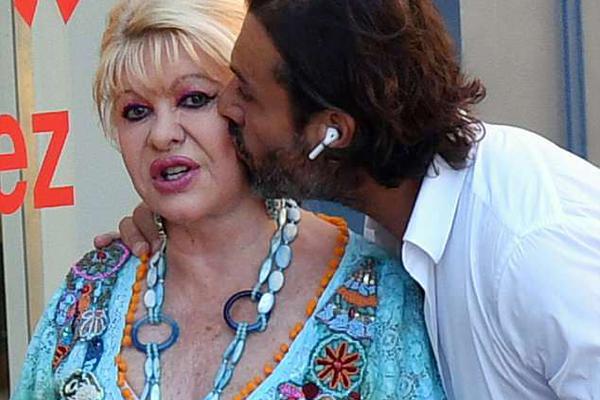First Facebook,Watch Avengers: Endgame Online then Twitter, then Facebook again, and now... Zello?
On Sunday, Roskomnadzor, the Russian federal agency responsible for censoring the media and internet, announced it was moving to "limit" the walkie-talkie app Zello. At issue, according to an official press release (translated from Russian by Google), is the Texas company's failure to prevent discussion of Russia's ongoing invasion of Ukraine on its platform.
"On March 4, Roskomnadzor, based on the decision, sent the administration of the American Internet resource Zello (Zello Inc.) a request to stop sending messages to users that contain false information about the course of a special operation of the Armed Forces of the Russian Federation on the territory of Ukraine," reads the translated message in part. "Due to the failure of the administration of Zello to comply with the requirements of Roskomnadzor within 24 hours, access to this application on the territory of the Russian Federation will be limited."
Zello, which offers both a free and a paid version of its service, lets users create voice discussion "channels" of up to 7,000 people — think voice chat rooms full of people talking to each other in real time. This functionality came in handy in 2017 when Zello users attempted to coordinate aid in response to Hurricane Irma, and, more recently, when Jan. 6 rioters using Zello infiltrated the U.S. Capitol building.
Russians using Zello inside the country seems to have run afoul of official government censors.
 An example of a Zello channel. Credit: Screenshot: Zello
An example of a Zello channel. Credit: Screenshot: Zello Importantly, Zello does offer an end-to-end encrypted chat feature. "Group conversations are private and encrypted end-to-end," the company explains. This means that (if implemented properly) no one, not even Zello, can listen in on those conversations. Public channels, which differ from Group conversations in that they're (as the name suggests) open to the public and searchable, are unencrypted.
We reached out to Zello in an effort to determine what effect, if any, this supposed limiting of its app in Russia has had on service. We also asked how many users in Russia the app has, and if the company has any response to Roskomnadzor's announcement. We received no immediate response.
Notably, this is not the first time the Russian government has moved to limit Zello in some way. In 2017, Zello said that officials attempted to block the app when the company failed to comply with a demand that it store user data in Russia.
"We would also [be forced to] provide law enforcement with the means of surveillance on Zello conversations globally and would have to share all Zello encryption keys with FSB, the Russian state security organization," read Zello's response at the time. "These are requirements that we are not able to meet or willing to comply with, even if we could."
SEE ALSO: What Russians should keep in mind when using TelegramZello said it had approximately 400,000 users in Russia in 2017.
As Russia moves to crack down in the country on online communication platforms like Twitter, Facebook, and now Zello, the value of a secure, and private, communication tool — like Signal, which saw a spike in use in Ukraine as Russia invaded, or Zello's end-to-end encrypted Group conversations — has never been more clear.
Topics Cybersecurity Privacy
(Editor: {typename type="name"/})
 Best robot vacuum deal: Get the Roborock Q5 Max for 53% off at Amazon
Best robot vacuum deal: Get the Roborock Q5 Max for 53% off at Amazon
 Why AI being funny could herald the next big tech breakthrough
Why AI being funny could herald the next big tech breakthrough
 Watch these distant planets orbit their star in spectacular time
Watch these distant planets orbit their star in spectacular time
 Xiaomi unveils tri
Xiaomi unveils tri
 Fyre Festival and Trump’s Language
Fyre Festival and Trump’s Language
The Best Gaming Concept Art of 2016
Apple reportedly gives up on Vision Pro 2, focusing on cheaper model instead
 As the rumor mill surrounding Apple's $3,500 Vision Pro heated up last year, we've repeatedly heard
...[Details]
As the rumor mill surrounding Apple's $3,500 Vision Pro heated up last year, we've repeatedly heard
...[Details]
Mirror sex: what is it and how do you have it?
 There’s nothing wrong with spending a bit of cash on fancy vibrators and complex sex-tech to b
...[Details]
There’s nothing wrong with spending a bit of cash on fancy vibrators and complex sex-tech to b
...[Details]
JD prepares new round pay hike to retail staff in fourth such notice in 2024 · TechNode
 China’s giant retailer JD announced it will take two years to realize a 20-month salary per year for
...[Details]
China’s giant retailer JD announced it will take two years to realize a 20-month salary per year for
...[Details]
Your 'wrong person' texts may be linked to Myanmar warlord
 Over the weekend, we covered the rise of "wrong person" scam texts — seemingly innocent messag
...[Details]
Over the weekend, we covered the rise of "wrong person" scam texts — seemingly innocent messag
...[Details]
What are the best seats on the plane?
 Not all airplane seats are created equal. If you're booking your next flight and wondering which sea
...[Details]
Not all airplane seats are created equal. If you're booking your next flight and wondering which sea
...[Details]
Portugal vs. Czech Republic 2024 livestream: Watch Euro 2024 for free
 TL;DR:Watch Portugal vs. Czech Republic in Euro 2024 for free on BBC iPlayer. Access this free strea
...[Details]
TL;DR:Watch Portugal vs. Czech Republic in Euro 2024 for free on BBC iPlayer. Access this free strea
...[Details]
NYT's The Mini crossword answers for June 19
 The Mini is a bite-sized version of The New York Times' revered daily crossword. While the crossword
...[Details]
The Mini is a bite-sized version of The New York Times' revered daily crossword. While the crossword
...[Details]
How to Easily Make iPhone Ringtones Using Only iTunes
5 best Apple rumors of 2024 (so far) — you'll be crossing your fingers for these
 Apple is one of the most hush-hush tech giants, doing whatever it takes to ensure that its plans and
...[Details]
Apple is one of the most hush-hush tech giants, doing whatever it takes to ensure that its plans and
...[Details]
This fat bear's before and after photos are stunning

Webb telescope sees bizarre galaxy cluster triplets mid

接受PR>=1、BR>=1,流量相当,内容相关类链接。